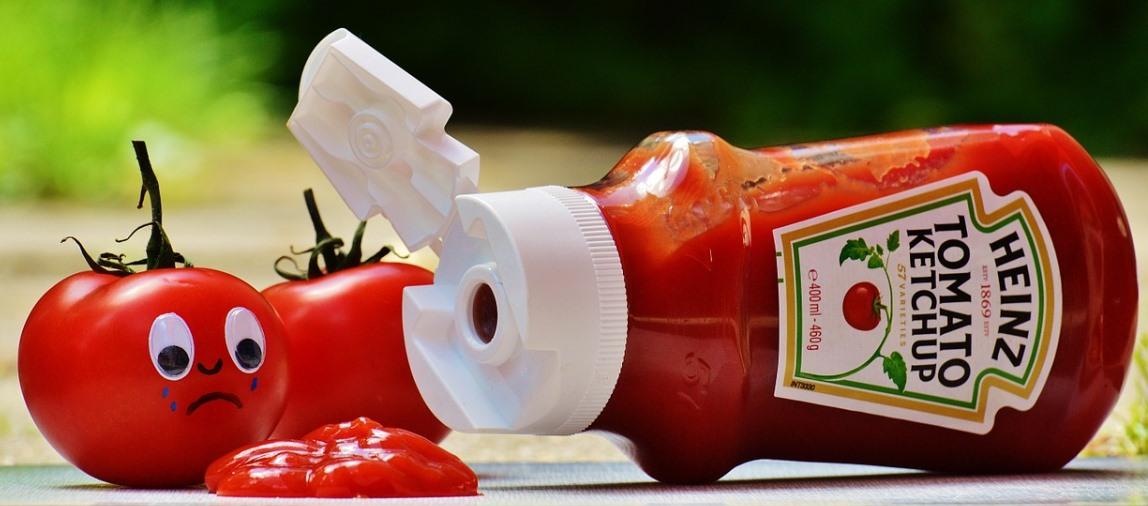Tomato Ketchup Project Report, Business Plan
Introduction
Hello friends, today we are here with a new topic called “Tomato Ketchup Project Report and Business Plan”. Tomato is one of the most famous vegetables that are in abundance during the cropping season in Odisha. Tomato is seen in food preparations and some more items like sauce, ketchup, chips, puree, etc. Ketchup is widely consumed along with fast food items and bakery products like pizzas, puffs, burgers, etc. This is made using tomato juice in which many other components and preservatives are included to endorse its taste, shelf life, and flavor. These products are not only consumed by kids but also by people with various age groups and demand is rising.
Tomato Ketchup Project Report, Tomato Ketchup Manufacturing Business Plan

Market research for tomato ketchup making business
The tomato processing segment is wide. The only ketchup and ketchup market in India accounts at Rs. 1,000 crore and growing about 20% per annum. There is a wide market for processed tomato items. Not only the domestics market even the demand of the packed tomato ketchup is seen foreign market leading to great export potential. Rapid urbanization has driven the application of processed tomato products.
Tomato ketchup is a widely popular condiment prepared from tomatoes as a base ingredient along with vinegar, sweeteners, and salt. An easy but versatile formulation of tomato ketchup has made it prevalent in various cuisines, with the growing demand for fast food thereby growth of the tomato ketchup market. Tomato ketchup is commonly served with bakery food items like sandwiches, burgers, fries, and grilled or fried meat. It finds its application as a base for various other ketchup for its popular and delicious flavor.
The ketchup market can be broadly segregated into four major categories: They are product ingredient type, application, distribution channel, and geography. For product ingredient type, the ketchup market can be classified into tomato ketchup, mushroom ketchup, mustard ketchup, fruit and nut ketchup, and others.
Ketchup is a staple item consumed along with traditional fast food items. The pleasant flavor in the ketchup has enhanced its consumption with local fast food items as well.
Therefore, leading producers of tomato ketchup are efficaciously creating provincial alternatives of their products depending on the cultural inclinations and compatibility with the available cuisines.
Market potential for Tomato Ketchup Manufacturing Business
The global tomato ketchup market is majorly driven by the growing demand for fast food items across the globe. While North America is the chief market for fast food, the growing adoption of Western culture in the world is building a significant demand for fast food in the Asia Pacific and Latin America areas, where the market leans towards rising owing to the rising disposable money of urban customers.
Due to the extensive prevalence of fast food joints and quick service restaurants in North America and Europe, which are the two leading providers to the global tomato ketchup market and are likely to retain a dominant share in the upcoming days. However, the Asia Pacific and the Middle East markets for tomato ketchup did showcase promising results in the past years, and with many countries in these continents steadily contributing to the economic development, thereby leading to a rise in the fast-food industry in these regions as well. This indicates the growth potential and possible demand in the market for producers of tomato ketchup in the coming future.
The demand for tomato ketchup is huge in a country like India. It has been observed to have a rise of 20 % per annum. As tomato ketchup is widely used, that is why the requirement is also very high in the market.
Business plan for tomato ketchup manufacturing business
Basis and presumptions
1. The production is carried out on a single shift comprising 8 hours per day and it is continued for 25 days in a month.
2. Land and building has been will demand a rent of Rs 10000.
3. Rate of interest for fixed and working capital will be around 15 % per annum.
Implementation schedule
It will take around 365 days to accomplish all the documentation and formalities before initiating the business on a large scale.
A business plan is very significant to attain success for any business. The necessary capital for initiating the business is a bit more as much of the amount will be used for machines purchase. A well-designed business plan is vital for a business as it will give the details of the operational tasks of the business cost-efficient manner.
License, registration, and permission required for tomato ketchup making business
Tomato ketchup is a food product and therefore the business demands several registrations and licenses before starting only. These requisites are commonly based on the area where you are establishing your plant. However, it is recommended to reach out to some local small business professionals and even tax consultants.
- Firstly, you must check the management module of your organization. This will mainly decide on which format you have to register your business.
- Next is to apply for MSME Udyog Aadhaar can be performed using online registration.
- Then, the essential to avail trade license from the local municipality.
- As the business will be under the food industry category. The organization must get consent from FSSAI which is also possible online.
- In recent years, GST has become mandatory and any business must acquire it.
- It is essential to open a current account in the nearby banks.
- CLU-for land use
- Shop act license
- Then it is essential to apply for the BIS certification. The product must be following the PFA Act, rules.
The machinery required for tomato ketchup making business
The Tomato ketchup manufacturing process demands several machines that have a crucial role in the manufacturing process. The list of machines is mentioned in the following section.
- A pulping machine
- The assorted aluminum
- The crown corking machine
- Hand-operated label gumming
- The process and exhaustion tank with the motor
- A semi-automatic bottle washing machine
- Spice grinding machine
- Testing equipment
Raw materials required for tomato ketchup making business
In case if you miss this: Face Mask Project Report.

The tomato ketchup-making business mainly demands items like tomatoes, cloves, pepper, cardamom, cinnamon, and other components like salt, and sugar, etc.
Manufacturing process of Tomato Ketchup
Ripe and matured tomatoes are cleaned and graded. The graded tomatoes will be boiled in steamed kettles. The boiled tomatoes will be pulped and the juice is separated from the fiber, seeds, and solid waste. Spices and condiments such as ginger, clove, garlic, salt, pepper, sugar, vinegar, etc. are added. Some of the preservatives are even included in ketchup pulp. The ketchup is then cooled rapidly and allowed to solidify which will give rise to pulpy ketchup. The ketchup is now ready for getting packed in sterilized bottles and pouches, later carefully sealed and stored for sales. The recovery of juice differs based on the quality and kind of tomatoes.
Tomato Ketchup Project Report / Economics of Tomato Ketchup Manufacturing Business
Tomato Ketchup Project Report – Machinery and Equipments
Pulper: Rs. 60,000
Stirrers: Rs. 20,000
Steam Jacketed Kettles: Rs. 40,000
Precision Weighing Scale: Rs. 10,000
Containers & vessels: Rs. 20,000
Furnitures: Rs. 20,000
Desktop computer: Rs. 30,000
Total Fixed Capital: Rs. 2,00,000
Requirement of Power = 10HP.
Tomato Ketchup Project Report- Man power required
Manager: Rs. 15,000
Sales Person: Rs. 24,000
Skilled workers: Rs. 10,000
Semi Skilled Workers: Rs. 8,000
Total: Rs. 57,000.
Tomato Ketchup Project Report – Utilities and other expenses
Power Charges: Rs. 6,500
Water charges: Rs. 1,000
Rent: Rs. 10,000
Telephone charges: Rs. 500
Miscellaneous expenses: Rs. 500
Total: Rs. 18,500.
Tomato Ketchup Project Report – Working capital
Tomato: Rs. 1,35,000
Other ingredient: Rs. 1,12,500
Packing Raw Material: Rs. 75,000
Salaries: Rs. 1,71,000
Utilities: Rs. 55,500
Rent, Telephone and other Miscellaneous expenses: Rs. 33,000
Total Working Capital: Rs. 5,82,000.
Tomato Ketchup Project Report – Total project cost
Fixed Capital: Rs. 2,00,000
Working Capital: Rs. 5,82,000
Total Project Cost: Rs. 7,82,000.
Means of finance
Own Capital: Rs. 1,95,500
Term Loan: Rs. 1,50,000
Working Capital Loan: Rs. 4,36,500.
Cost of production per year
Total recurring cost: Rs. 23,28,000
Depreciation on machinery @10%: Rs. 18,000
Depreciation on furniture @20%: Rs. 4,000
Interest on term loan + Working capital loan @15%: Rs. 87,975
Total Cost of Production: Rs. 24,37,975.
Turn over per year
Tomato sauce 30,000 kg – Rs. 95/unit: Rs. 28,50,000.
Net profit (before taxation) per year
Net Profit (before taxation) per year: Rs. 4,12,025.
Net profit ratio
= (Net profit per year x 100) / Turnover per year
= (412025 x 100) / 28,50,000
= 14.45%.
Rate of return on total investment
= (Net profit per year x 100) / Total investment
= (412025 x 100) / 7,82,000
= 52.68%.
Break Even Point
Fixed Cost
Rent for one year: Rs. 1,20,000
Total depreciation: Rs. 22,000
Interest on total investment: Rs. 87,975
40% of salaries: Rs. 2,73,600
40% of utilities: Rs. 91,800
Total: Rs. 5,95,375
BEP = (Fixed Cost x 100) / (Fixed Cost + Net Profit)
= (5,95,375 x 100) / (5,95,375 + 4,12,025)
= 59.10%.
Conclusion
Tomato ketchup that is prepared in-house, without using preservatives is getting more demand because of its grade and appealing taste. It has opened a channel for businessmen to sell their products at a higher margin and secure more income. These do not contain chemicals and preservatives, being homemade, and have short expiry dates. As it rightly said that quantity and quality never stand together in the majority of cases. This statement s true for homemade products.
- Pet-Tech Startups: Innovations for Animal Lovers
- Tech Repair Services: Meeting the Demand for Gadget Maintenance
- Maximizing Rewards: Smart Credit Card Habits for Cashback and Points
- Ultimate Guide to Making Money from Goat Milk Business
- How to Start an Agricultural Value Added Product Business
- Value-Added Business Ideas for Greenhouse: The Best Ways to Make Profits with Greenhouse Farming
- How to Make Profits with Organic Country Chicken: Best Strategies for Beginners
- 10 Value-added Business Ideas for Millets: Low-investment and Highly Profitable
- Why Cleaning Service Business Becoming More Profitable in Metro Cities in India
- 10 Best Businesses to Start in Ayodhya for Profits
- Top Drone Business Ideas in India: Unlocking Aerial Innovation & Opportunities
- Top 10 Service Businesses You Can Start with No Money
- Ultimate Guide to Starting a Home-Based Advertising Agency Business
- Starting a Nail Salon Near Your Location: Check List, Business Plan, Licensing, and Opening Instructions
- Construction Company Name Ideas: Guide to Create New Construction Company Names
- 8 Best Small Businesses to Start in Hyderabad: Low-Cost and Profitable
- 10 Best Small Businesses to Start in Massachusetts: Low-Cost and Profitable
- 10 Best Small Businesses to Start in Maryland: Low-Investment and Profitable
- 10 Best Small Businesses to Start in Delaware: Low-Investment and Profitable
- 10 Best Small Businesses to Start in Connecticut: Low-Investment and Profitable
- Top 10 Best Online Pet Business Ideas: Exploring Cats to Dogs
- 10 Best Small Businesses to Start in Colorado: Low-Investment and Profitable
- Top 10 Profitable Small Business Ideas in California: Low-Investment Tips
- From Little Rock to Fayetteville: Top 10 Profitable Small Business Ideas in Arkansas